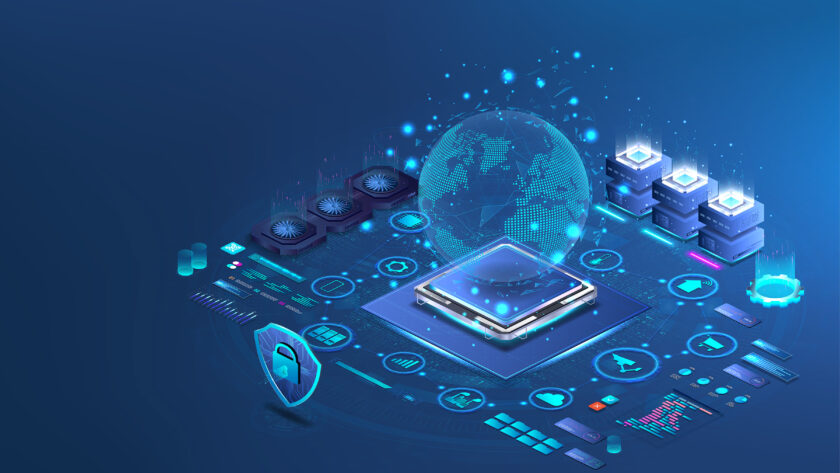Technology has always been a driving force behind societal advancement, and today, it continues to shape how we live, work, and interact with the world around us. With constant breakthroughs, the technology landscape is evolving at an unprecedented pace. In this article, we’ll explore some of the most exciting technological innovations, current trends, and how these developments are impacting various aspects of our lives and industries.
The Evolution of Technology
From the advent of the internet to the rise of mobile devices and cloud computing, technology has dramatically transformed our world. As digital transformation accelerates, emerging technologies such as artificial intelligence (AI), blockchain, and 5G are poised to revolutionize industries and create new opportunities. However, it’s not just about new gadgets; these innovations are enhancing productivity, improving efficiency, and solving complex global challenges.
Key Technology Trends
- Artificial Intelligence (AI) and Machine Learning (ML)
AI and machine learning are at the forefront of technological innovation. AI enables machines to mimic human intelligence by learning from data, making decisions, and improving over time. Machine learning, a subset of AI, uses algorithms to identify patterns and make predictions. These technologies are transforming industries like healthcare, finance, and manufacturing by automating processes, enhancing decision-making, and providing valuable insights from big data. - Blockchain Technology
Blockchain is a decentralized, secure ledger system that allows data to be recorded in a transparent and tamper-resistant way. Initially known for supporting cryptocurrencies like Bitcoin, blockchain technology is now being explored for a wide range of applications, from secure supply chain tracking to decentralized finance (DeFi) platforms. Its ability to provide trust and security is prompting industries to explore its potential for everything from digital identity verification to smart contracts. - 5G Connectivity
The rollout of 5G networks promises to revolutionize mobile communication with faster speeds, lower latency, and greater connectivity. 5G will enable innovations in areas such as smart cities, autonomous vehicles, and augmented reality (AR). The enhanced capabilities of 5G will allow for the seamless transmission of large data sets in real-time, fueling the growth of the Internet of Things (IoT) and enabling the development of more connected and intelligent systems. - Internet of Things (IoT)
The IoT refers to the network of physical devices, vehicles, and home appliances embedded with sensors, software, and connectivity, enabling them to collect and exchange data. IoT has applications across various sectors, including agriculture, healthcare, and home automation. Smart homes are now equipped with voice assistants, security cameras, and temperature control systems that can be controlled remotely, improving convenience and efficiency for consumers. - Virtual Reality (VR) and Augmented Reality (AR)
VR and AR are immersive technologies that are changing the way we experience the digital world. Virtual reality creates a fully immersive environment, while augmented reality overlays digital elements onto the real world. VR is increasingly used in gaming, training simulations, and entertainment, while AR has applications in education, retail, and real-time navigation systems. Both technologies are improving user engagement and creating new opportunities for businesses to interact with customers. - Quantum Computing
Quantum computing represents the next frontier in computing power, leveraging the principles of quantum mechanics to process information at speeds far beyond traditional computers. While still in its infancy, quantum computing has the potential to solve complex problems in fields such as cryptography, drug discovery, and climate modeling. As researchers continue to make progress, quantum computing could lead to breakthroughs that were once unimaginable. - Automation and Robotics
Automation and robotics are transforming industries by enhancing productivity and reducing the need for human labor in repetitive or dangerous tasks. From automated manufacturing processes to robotics in healthcare, the use of machines to perform specific tasks is growing rapidly. Robotics, combined with AI, is also improving supply chain efficiency, medical surgeries, and even customer service with chatbots and robotic assistants.
Impact of Technology on Various Industries
- Healthcare
Technology is revolutionizing healthcare by improving patient care, streamlining operations, and enabling remote consultations. Telemedicine allows patients to connect with healthcare providers remotely, while AI is being used to assist in diagnostics, drug discovery, and personalized treatment plans. Wearable devices like fitness trackers and smartwatches are helping individuals monitor their health and detect early signs of illness. - Finance and Fintech
The financial services industry is being reshaped by fintech, digital banking, and blockchain. Cryptocurrency is changing the way people invest and transact, while mobile banking and digital wallets are making financial services more accessible to a broader population. Blockchain is being adopted for secure transactions, eliminating the need for intermediaries and lowering costs in the financial system. - Manufacturing and Industry 4.0
The next phase of industrial development, known as Industry 4.0, combines automation, data exchange, and manufacturing technologies to create smarter factories. By incorporating IoT, AI, and robotics, manufacturers are improving production efficiency, reducing costs, and creating safer work environments. Real-time monitoring and predictive maintenance are helping businesses avoid costly downtime and increase operational efficiency. - Education
Technology in education is changing the way students learn and teachers teach. Online learning platforms, virtual classrooms, and AI-powered tutoring systems are making education more flexible and accessible. The use of interactive tools such as VR and AR is providing immersive learning experiences, while big data analytics helps track student performance and tailor educational content to individual needs. - Transportation and Autonomous Vehicles
The transportation industry is experiencing a revolution with the rise of autonomous vehicles (AVs), electric vehicles (EVs), and connected infrastructure. AVs have the potential to reduce accidents, improve traffic flow, and increase energy efficiency. The integration of IoT, AI, and 5G is also transforming logistics and fleet management by providing real-time tracking, predictive maintenance, and route optimization.
The Challenges and Opportunities Ahead
While technological advancements bring immense benefits, they also come with challenges. Data privacy, cybersecurity, and ethical considerations are key concerns as technology becomes more integrated into every aspect of life. Governments, businesses, and individuals must work together to address these challenges, ensuring that technology is used responsibly and inclusively.
Moreover, as automation and AI continue to evolve, there are concerns about job displacement and the future of work. However, technology also creates new opportunities for innovation, entrepreneurship, and the development of entirely new industries.
Conclusion
The future of technology is bright, filled with innovations that will continue to transform our lives, our industries, and our societies. As we embrace the potential of AI, blockchain, 5G, IoT, and other emerging technologies, we are only beginning to scratch the surface of what is possible. The key to success will be harnessing these technologies to create solutions that benefit humanity while addressing the ethical, societal, and environmental challenges that come with rapid innovation.
The next generation of technology holds the promise of a smarter, more connected, and more sustainable world. It’s an exciting time for anyone interested in the future of technology and the transformative potential it holds.




